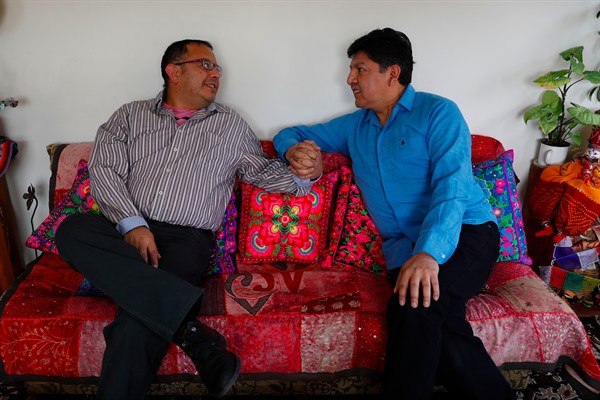LA PAZ, Bolivia—“The biggest change is a mental one,” Guido Montano, one half of Bolivia’s first-ever same-sex civil union, told me when I asked him recently how his life had changed since he and his longtime partner, David Aruquipa, won a two-year legal battle to register their union last December. “It may seem a vague idea in day-to-day life,” he said, “but I just immediately sensed that we have more rights.”
That vague idea suddenly became much more real in January, when both men contracted COVID-19, forcing them to contemplate a worst-case scenario. “With David really ill, the fact that we can now leave our pensions to each other and that we would have had no problem visiting each other in the hospital suddenly made a huge difference,” Montano said. Fortunately, both of them recovered within a matter of weeks.
For Aruquipa, one of the biggest impacts of being in a civil union was the altered dynamic with each other’s families. “Before, we were just a couple, but after, we were a whole lot more,” he said. “Everyone takes our relationship seriously in a whole new way.”

